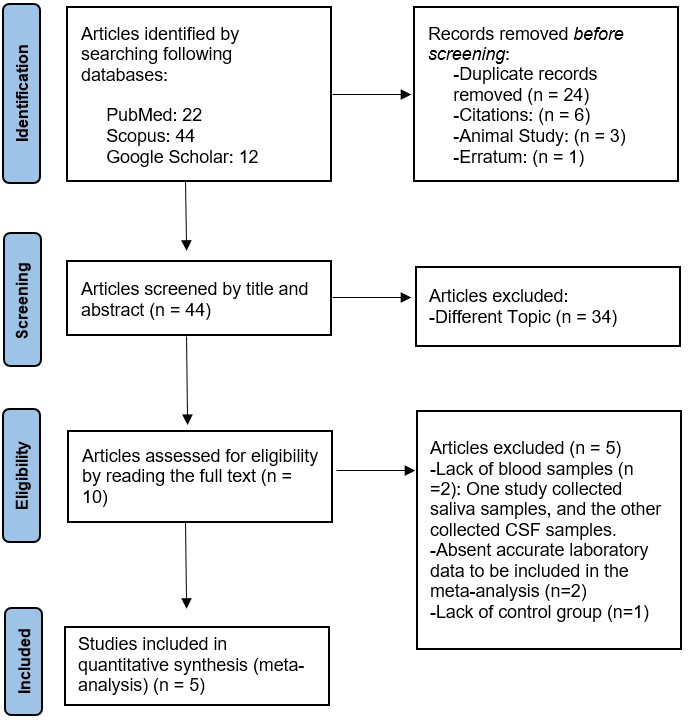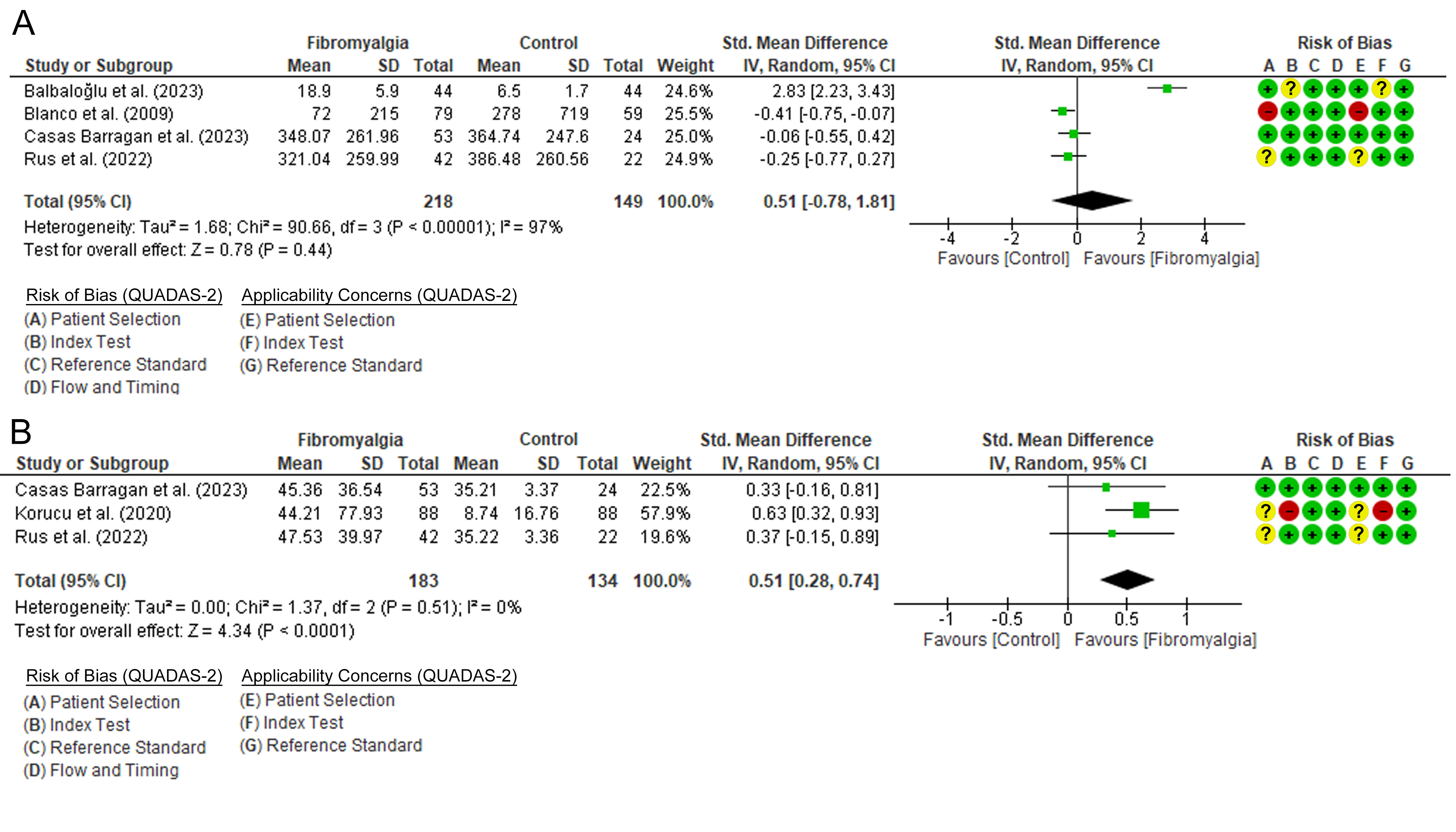Session Information
Session Type: Poster Session B
Session Time: 10:30AM-12:30PM
Background/Purpose: Fibromyalgia syndrome (FMS) is characterized by generalized muscle pain, fatigue, psychological distress, cognitive dysfunction, and sleep disturbances. The physiopathology of FMS is not fully understood, making the diagnosis and management of FMS challenging. The most reliable diagnostic criteria are those of the American College of Rheumatology (2016). Still, many FMS patients are not correctly identified, and no reliable blood markers have been integrated in clinical practice to assist in FMS diagnosis. Calcitonin gene-related peptide (CGRP) is a vasodilator and neurotransmitter in peripheral and central neurons. VEGF regulates angiogenesis and blood microcirculation. Both pain transmission and microcirculation have been implicated in FMS pathophysiology. The aim of this systematic review and meta-analysis was to investigate whether serum CGRP and VEGF levels differ between FMS patients and controls.
Methods: PubMed, Scopus, and Google Scholar databases were systematically searched for relevant articles published before the 1st of June 2024. Review Manager was used to perform the meta-analysis. Mean (SD) values of markers were extracted from the studies. A random-effects model was applied to calculate each marker’s overall standardized mean difference (SMD). If the study reported its findings using the median (IQR), the skewness of its data was explored, and the mean (SD) values were estimated accordingly. The methodological quality and risk of bias of included studies were assessed through the quality assessment of diagnostic accuracy studies (QUADAS-2) revised tool.
Results: Five studies involving 306 FMS patients and 237 controls were included (Figure 1,2). Data regarding VEGF serum levels was pooled from 4 studies, while data regarding CGRP serum levels was pooled from 3 studies. VEGF serum levels were not significantly different between FMS cases and controls (SMD = 0.51, 95%CI = -0.78 to 1.81, p = 0.44), and pooled studies exhibited significant heterogeneity. (Figure 3) CGRP serum levels were significantly higher in FMS cases than in controls (SMD = 0.51, 95%CI = 0.28 to 0.74, p < 0.001), where pooled studies did not exhibit observed heterogeneity. (Figure 3)
Conclusion: Measuring serum CGRP may be useful in aiding the diagnosis of FMS, and is promising to be incorporated into clinical practice, as levels were significantly higher in FMS patients than controls. Future studies are recommended to determine a reliable cut-off value along with the exploring the diagnostic accuracy of such marker.
To cite this abstract in AMA style:
Al Zoubi O, Chavez D, Katz R. Association Between Fibromyalgia and Serum Levels of Calcitonin Gene-Related Peptide and Vascular Endothelial Growth Factor: A Meta-Analysis [abstract]. Arthritis Rheumatol. 2024; 76 (suppl 9). https://acrabstracts.org/abstract/association-between-fibromyalgia-and-serum-levels-of-calcitonin-gene-related-peptide-and-vascular-endothelial-growth-factor-a-meta-analysis/. Accessed .« Back to ACR Convergence 2024
ACR Meeting Abstracts - https://acrabstracts.org/abstract/association-between-fibromyalgia-and-serum-levels-of-calcitonin-gene-related-peptide-and-vascular-endothelial-growth-factor-a-meta-analysis/



